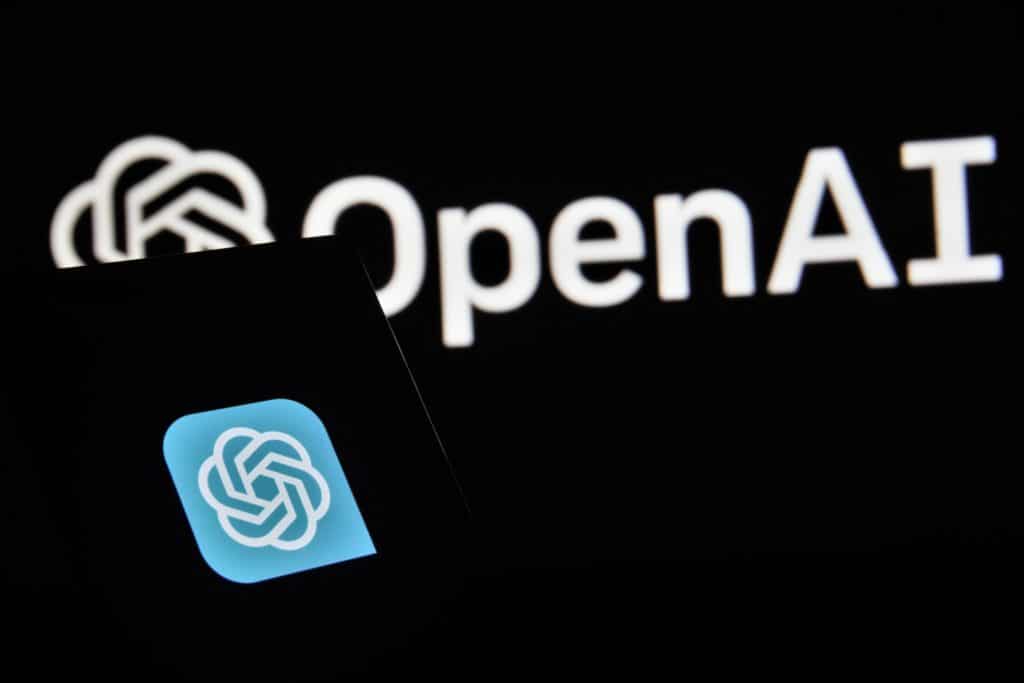In an era where technological advancements are not just luxuries but necessities, the role of artificial intelligence (AI) in business has become more significant than ever. This technology, once considered the realm of science fiction, is now a cornerstone in the strategic development of businesses across various sectors. From enhancing customer experiences to optimizing operational processes, AI is revolutionizing the way companies operate and compete.
This guide offers a deep dive into the fascinating world of AI in business, illuminating its potential, challenges, and transformative impact. By exploring real-life examples and providing actionable insights, this guide serves as a roadmap for businesses looking to leverage AI for sustainable growth and competitive advantage.
Key Takeaways
- Strategic Integration: Understanding AI’s role in shaping business strategies for a tech-driven future.
- Technology and Talent Synergy: Balancing AI technology with human expertise to create a harmonious working environment.
- Ethical Considerations: Ensuring AI adoption aligns with ethical standards and social responsibility.
- Innovation and Adaptability: Embracing AI for continuous innovation and adaptability in a dynamic market.
Role of AI in Business
1. Strategic Decision-Making
AI’s role in strategic decision-making is profound. It processes vast datasets, offering insights that are beyond the scope of traditional analysis. This capability is crucial in fast-paced markets where timely decisions can mean the difference between success and failure. AI algorithms can predict market changes, assess customer sentiment, and even identify new business opportunities.
For example, AI-powered sentiment analysis tools can evaluate social media data to gauge public opinion about a product or service, allowing companies to adjust their strategies proactively. Additionally, AI can play a significant role in competitor analysis, providing businesses with a comprehensive view of the market landscape and enabling them to stay one step ahead.

2. Enhancing Customer Interactions
AI’s impact on customer interactions extends to personalization, a key factor in customer retention and satisfaction. By analyzing customer data, AI can help businesses tailor their offerings to individual preferences, creating a more personalized shopping experience. For instance, e-commerce sites use AI to display products based on a user’s browsing history, increasing the likelihood of purchase.
In customer support, AI-powered tools can handle complex queries, providing personalized solutions based on past interactions. This level of personalization not only improves the customer experience but also fosters a sense of loyalty and trust towards the brand. Moreover, AI’s ability to analyze customer feedback in real-time allows businesses to swiftly address issues and improve their services.
3. Streamlining Operations
AI’s contribution to streamlining operations is evident in its ability to enhance quality control and predictive maintenance. In manufacturing, AI-powered systems can analyze production data to identify quality issues, reducing waste and improving product standards. Predictive maintenance, enabled by AI, allows businesses to anticipate equipment failures before they occur, minimizing downtime and extending the life of machinery.
In logistics, AI can optimize routes and delivery schedules, taking into account factors like traffic conditions and weather, thus ensuring timely deliveries and reducing operational costs. These applications not only streamline operations but also contribute to a more sustainable business model by reducing waste and improving efficiency.
4. Risk Management and Security
In risk management, AI’s predictive analytics play a crucial role in financial planning and crisis management. By analyzing historical data, AI can identify potential financial risks, allowing businesses to make informed decisions about investments and resource allocation. In crisis management, AI can simulate various scenarios, helping companies prepare for and respond to emergencies effectively. In terms of cybersecurity, AI’s role is expanding beyond threat detection to include proactive measures.
AI systems can now learn and adapt to new threats, continually updating their defense mechanisms. This adaptability is crucial in an environment where cyber threats are constantly evolving, ensuring businesses remain protected against the latest security challenges.

Real-Life Examples of AI in Business
Retail – Amazon
Amazon’s utilization of AI spans several facets of its business, making it a pioneer in this field. The most visible use of AI is in Amazon’s recommendation system, which analyzes customer behavior to suggest products, enhancing the shopping experience and increasing sales. Beyond this, Amazon employs AI in its vast logistics network. Machine learning algorithms optimize warehouse operations, from stocking items to guiding robots for efficient package handling. In pricing strategies, AI tools analyze market trends and competitor prices, adjusting Amazon’s pricing in real-time to stay competitive.
Amazon’s AI-driven innovation also extends to its Amazon Go stores, where AI and computer vision technologies enable a cashier-less shopping experience. Customers simply walk in, pick up items, and leave without the need for traditional checkout processes, as the system automatically charges their Amazon account. This technology not only streamlines the shopping experience but also collects data on shopping habits, providing valuable insights for inventory and store layout optimization.
In the realm of cloud computing, Amazon Web Services (AWS) offers AI and machine learning services to businesses, enabling them to integrate AI into their operations without developing the technology in-house. This democratization of AI technology exemplifies Amazon’s vision of making AI accessible across various industries.
Finance – JPMorgan Chase
JPMorgan Chase leverages AI in several key areas to enhance its financial services. The bank uses AI for risk assessment, analyzing vast amounts of data to identify potential credit risks and fraud. This capability allows for more accurate credit scoring and efficient fraud detection, thereby protecting both the bank and its customers.
In trading, JPMorgan employs AI-driven algorithmic trading strategies that can execute trades at optimal prices and times, based on real-time market data analysis. This technology provides the bank with a competitive edge in financial markets by maximizing profits and minimizing risks.
Additionally, JPMorgan Chase uses AI to offer personalized banking services. By analyzing customer data, AI tools can provide customized financial advice, suggest suitable financial products, and even predict future needs, enhancing customer satisfaction and loyalty.
Moreover, the bank is exploring the use of natural language processing (NLP) AI technologies to automate and improve customer service interactions. This AI application can handle routine inquiries efficiently, freeing human customer service representatives to focus on more complex issues.
Healthcare – IBM Watson
IBM’s Watson Health represents a significant advancement in AI’s application in healthcare. Watson Health uses cognitive computing to process vast amounts of medical data, including patient records, clinical trials, and medical journals. This capability assists doctors in diagnosing diseases by providing comprehensive, data-driven insights.
Watson’s ability to analyze and interpret medical images, such as X-rays and MRIs, helps radiologists identify abnormalities more quickly and accurately. This not only speeds up the diagnostic process but also improves the accuracy of diagnoses.
In oncology, Watson assists in cancer treatment by analyzing a patient’s medical history and the latest cancer research to suggest personalized treatment plans. This individualized approach is crucial in cancer care, where treatments can vary significantly based on the patient’s unique medical profile.
Watson Health also plays a role in drug discovery and research. By analyzing complex biochemical data, Watson can identify potential drug candidates and assist in predicting their efficacy and side effects, accelerating the drug development process.
Automotive – Tesla
Tesla’s use of AI is most renowned in its development of autonomous vehicles. Tesla’s self-driving cars use AI algorithms to interpret sensor data, allowing them to navigate roads, avoid obstacles, and make real-time driving decisions. This technology is continuously improved through over-the-air software updates, enhancing vehicle safety and performance.
Beyond autonomous driving, Tesla uses AI in predictive maintenance. By analyzing vehicle data, Tesla can predict when parts might fail or require service, notifying owners proactively. This not only improves the overall customer experience but also helps in maintaining the vehicle’s longevity and performance.
In manufacturing, Tesla employs AI to optimize its production lines. AI algorithms analyze production data to identify bottlenecks and inefficiencies, enabling Tesla to increase its manufacturing throughput and reduce costs.
Tesla’s AI applications also extend to energy management. The company’s AI-powered battery software optimizes energy storage and usage in Tesla’s Powerwall and Powerpack products. This technology enables more efficient use of renewable energy, contributing to Tesla’s mission of sustainable energy.
Final Words
The integration of AI in business is more than a technological evolution; it represents a strategic imperative for future growth and sustainability. As we stand at the cusp of a new digital revolution, the successful adoption of AI will differentiate the leaders from the followers in the business world.
This guide underscores the vital importance of AI in shaping business strategies, enhancing operational efficiencies, and driving innovation. The future of business lies in the synergy between human ingenuity and AI’s capabilities, creating an ecosystem where ethical, sustainable, and profitable growth is not just a goal but a reality.
